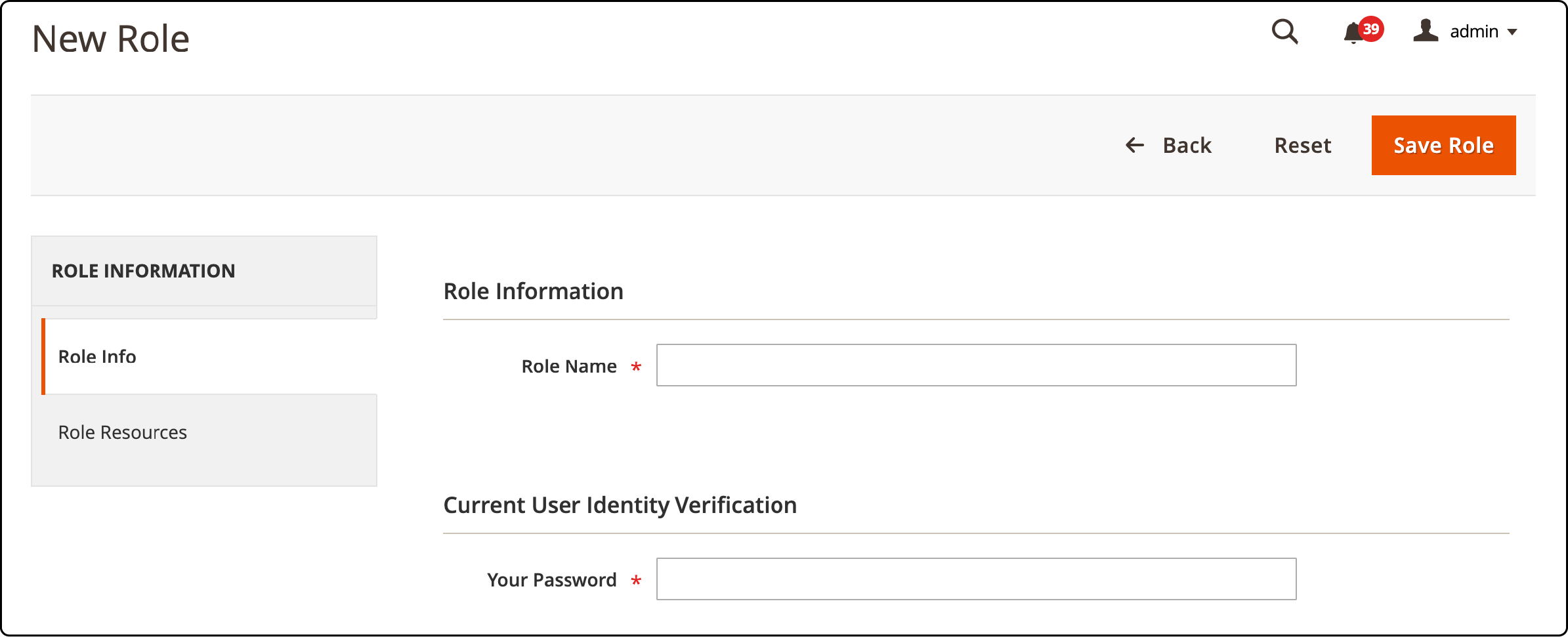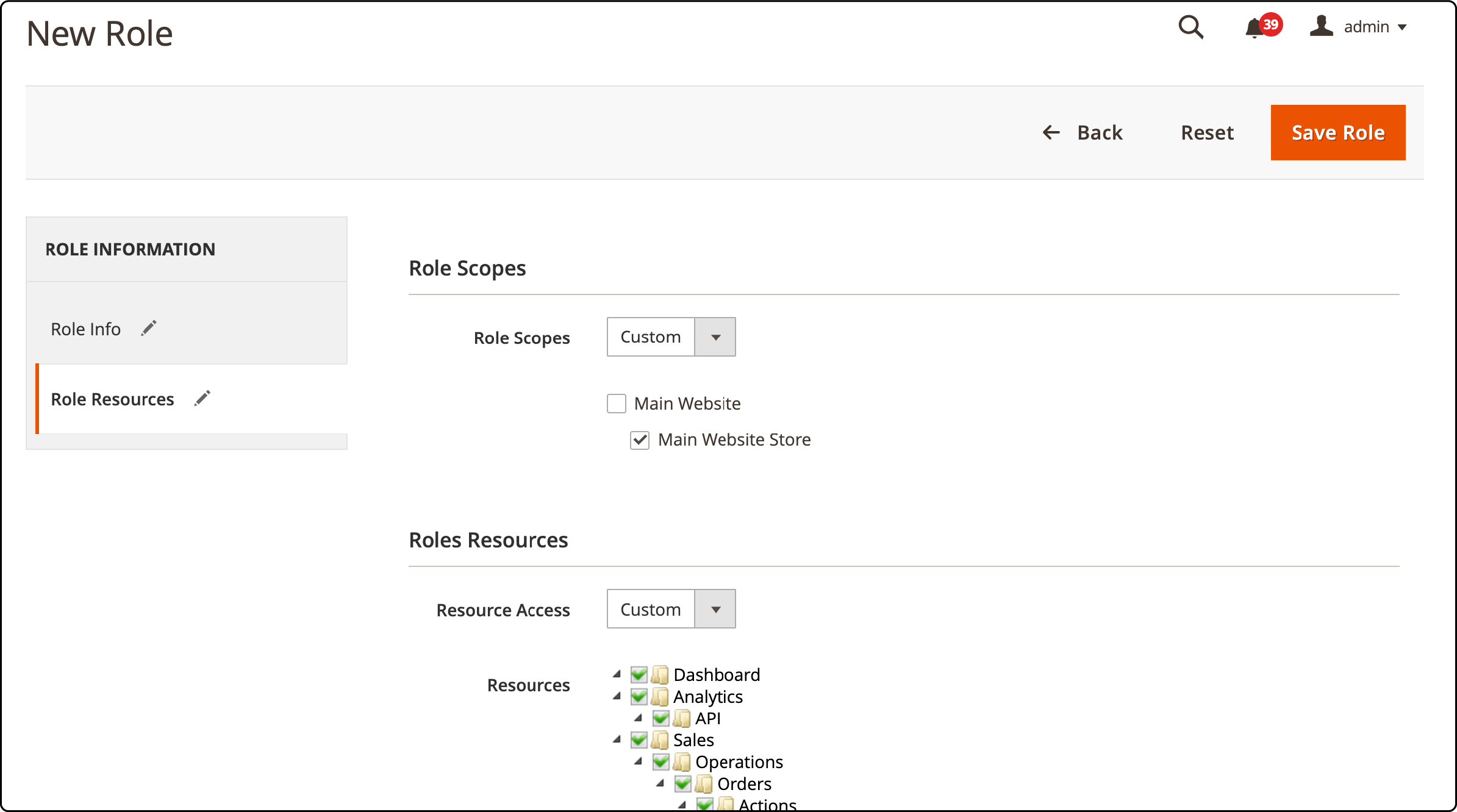
Configure Magento 2 User Roles? Secure Store Operations
Magento 2 user roles allow you to control and restrict access to certain backend areas for different users. Before adding users to your store, you should create user roles in Magento 2 for enhanced security measures.
It allows you to set permissions for users, limiting their access to specific sections of the Magento 2 admin panel. This tutorial will guide you through the process of creating user roles in Magento 2.
Key Takeaways
-
Learn how to create and manage user roles in Magento 2 for better security and efficiency.
-
Understand the significance of user roles in safeguarding sensitive information in your e-commerce store.
-
Discover how to customize permissions for each team member, enhancing control and accountability.
-
Gain insights into the benefits of using user roles, from streamlining operations to increasing accountability.
-
Get quick answers to common questions about Magento 2 user roles and permissions.
What are Magento 2 User Roles?
User roles in Magento 2 are a set of permissions and privileges assigned to a specific user. These roles determine user actions on the admin panel, such as managing customers, orders, products, etc. By assigning different user roles, you can limit access to sensitive information and ensure that only authorized personnel have access to it.
Importance of User Roles in a Magento Store
Magento's user roles are crucial for maintaining secure and efficient e-commerce operations. They provide the capability to manage and control access rights for each admin user, ensuring that sensitive information is protected.
Some of the reasons behind the importance of Magento 2 user roles are:
Security
By limiting the areas of the Magento 2 admin panel that certain users can access, you ensure that sensitive data is only accessible to those who genuinely need it. This greatly reduces the risk of important information falling into the wrong hands.
Efficiency
Assigning specific roles helps keep the backend operations of your store running smoothly. Each user knows their responsibilities, and there is no overlap or confusion about who is supposed to do what.
Control
User roles allow the store owner or main administrator to maintain control over the store's operations. They can easily manage user roles, add new users, or adjust the current user's permissions.
Flexibility
With the advanced permissions extension, Magento user roles can be customized to suit your store's individual needs. You can create a user role that fits exactly the tasks and responsibilities of each team member.
Audit Trail
When each admin user has a unique role, tracking activity and changes on the backend is easier. This can be invaluable when trying to trace a problem or understand how a mistake occurred.
How to Create a New User Role in Magento 2
- Navigate to System -> Permissions and from there, select User Roles.

Next, you will find a list of the user roles currently available to you, which can be modified as needed.
- To create a new user role, click on the Add New Role button.

-
Fill in the necessary details for the "Role Information" section.
-
Enter a name for the user role in the Role Name field.
-
In the "Your Password" field, provide your current password as a security measure. Once you confirm your password, you can immediately add or edit roles.
-
-
Navigate to the "Role Resources" tab and select the resources that the administrator user should be able to access.

If you want to grant this user access to all pages and functionalities of the admin panel, select 'All' in the 'Resource Access' option.
To be able to choose specific interfaces to provide access, select 'Custom' in the 'Resource Access' field.
After completing your task, remember to click on the "Save Role" button.
Once the new Magento user role is established, you can designate it as the admin user.

Benefits of Using User Roles
Leveraging user roles in Magento 2 offers several advantages. It improves your store's backend's efficiency, security, and manageability. These benefits include:
-
Streamlined Operations: Each team member can focus on their responsibilities by assigning specific user roles. This leads to improved productivity and effectiveness.
-
Enhanced Security: User roles limit access to sensitive information. This reduces the likelihood of accidental data leaks.
-
Accountability: With individual user roles, any changes made in the system can be traced back to a specific user. This increases accountability among team members.
-
Customization: Magento 2 admin user roles can be customized to meet your store's unique needs. This ensures that team members have appropriate access to their respective roles.
-
Ease of Management: User roles simplify the task of administering a Magento 2 store. They make managing current user accounts and privileges easier.
FAQs
1. How do you manage user permissions in Magento 2?
Magento 2 permissions management is handled through the permissions tool in the admin dashboard. Here, you can create custom roles, assign users to roles, and define their level of permissions.
2. How can I create a new role in Magento 2?
You can create a new role from the admin dashboard. Navigate to the permissions tool section, and you'll find the option to create a custom role. Choosing a reliable Magento hosting service is crucial for the effective performance and security of your Magento 2 store.
3. How can I assign a role with access to specific parts of the catalog?
During the role creation or editing process, you can specify the scope of the role. This controls which parts of the catalog the role can access.
4. Can I enable different admin permissions for each online store in my Magento 2?
Yes, Magento 2 allows you to set different admin roles and permissions for each online store. Assigning different roles gives you granular control over who can access what.
5. Is there a way to disable access to the permissions tool?
Yes. Using a Magento 2 admin permissions extension, you can restrict access to the permissions tool itself.
6. How can I get Magento admin access to my online store?
To get admin access, you will need the Magento user permissions assigned to you by the store owner or administrator.
Summary
Magento 2 user roles are a helpful feature for managing permissions in your online stores. The platform offers flexibility for creating customized roles based on user tasks. We covered creating, assigning, and managing roles and handling permissions for specific catalog parts. With these insights, you can effectively streamline your operations and enhance your store's security.
To ensure optimal performance and security for your online stores, Magento optimized server provides a robust and scalable infrastructure.


